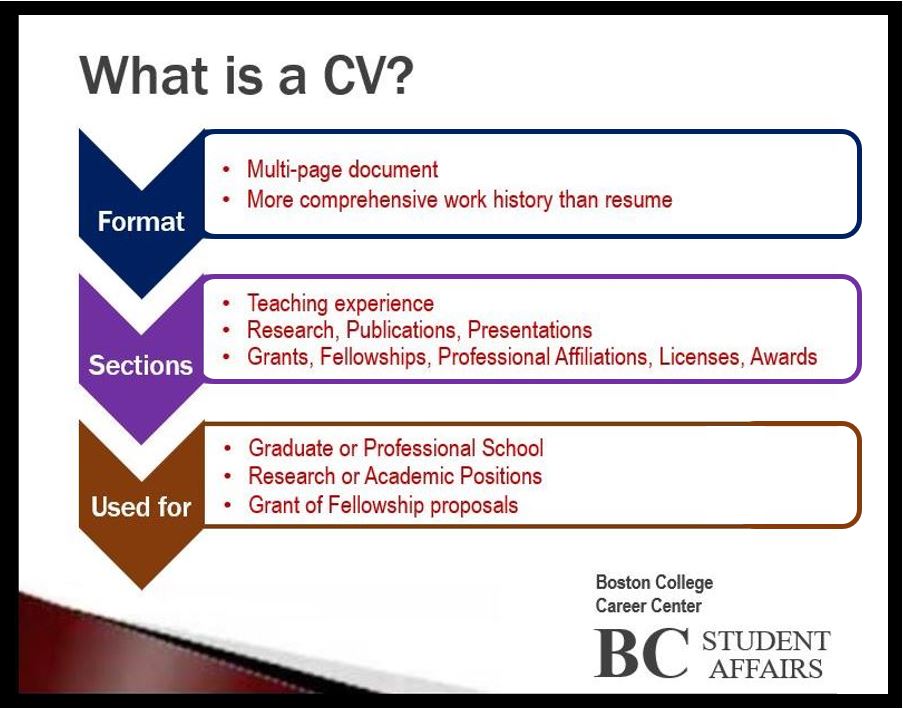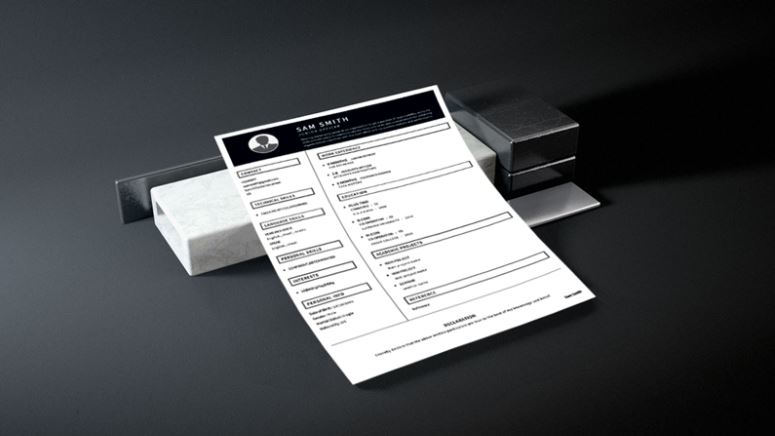The acronym CV stands for Curriculum Vitae, and it is understood as a resume. It is a summary of the job seeker’s previous education, work experience, and the skills related to the nature of the job or the position the applicant seeks. A CV is completely different from a resume. It plays an important role in helping employers easily assess and comment on the ability and qualifications of the candidate before the interview.

Classify CV
There are many ways to write a CV – you don’t have to follow a pattern. You can compose a CV online or write one by hand. There are 3 types of CVs that most people use, such as:
CV in chronological order
This is the CV template that many people choose because it’s quite easy to write. Employers also prefer this type because they can quickly determine how much and what type of experience the candidate has. A timeline CV is a good choice if you pursue a position in a field with a certain career process. However, using this type may be detrimental to your job seeking efforts if your recent experiences are not relevant to the job you are applying for, you have been working for less than a year, or there is a big gap in between jobs.
CV according to your skills
This type of CV emphasizes your skills, experience, and achievements rather than the work you did. It ignores (or only refers to the stage) your previous roles and working time. In short, this type of CV is necessary when you seeking a position without significant experience or you are trying to get back to work after a period of interruption. However, it has one major disadvantage: many employers often view them with some suspicion. Your strengths and achievements are important to employers. However, most of them want to know the details of the your previous and current jobs. They also want to know about your recent experiences, and, if possible, what your career prospects might be.
CV combined
This type has a mixture of the two types of CVs mentioned above. Typically, it includes the skills and qualifications you have, followed by how long your worked in each job.
This type of CV might be a good option if you are looking for a career change and want to highlight common skills related to previous jobs, you have not been successful in finding a job using a chronologically-ordered CV. However, the combined CV has one downside: some employers, who like CVs in chronological order may think that you are trying to mask some aspects of your skills.
To write a good CV, you must first know what you are, what your strengths and weaknesses are and what are you writing a CV for?
What does the CV include?
A perfect CV not only provides complete personal information but also creates a strong impression, attracting employers.
Personal information of the applicant
In this section, you will be presented with information about your name, date of birth, home town, place of permanent residence registration, current residence, phone number, email, etc.

Skills
Skills are important components of every job CV. You should include your relevant skills such as soft skills, communication skills, presentation skills, etc.
Work experience
There are no denying that CVs must include work experience. Today, employers require their candidates to have work experience so that they can perform their duties effectively and don’t require costly training. However, when talking about work experience, choose what is most relevant to your position. Recently-qualified graduates should include social activities, part-time jobs, etc. You should be able to find the skills that are related to the position you seek.
Career goals and orientations
Employers want their future employees to be people with clear objectives, specific plans, and achievements. They want to know whether candidates have career goals and orientations that integrate multiple paths or activities.
Personal talents and hobbies
A good CV should include details of the candidate’s hobbies and personal talent. If you are good at singing, acting, or certain sports, say so. Many employers today actively promote cultural activities in the workplace. This part of the CV also gives you the opportunity to define your personality.
The importance of a CV
Not only is a CV the best tool there is to compete effectively against other job seekers, it is also, as far as employers are concerned, a basic requirement. Your CV accounts for 80% of your chances of being asked to come for a job interview.
In the process of finding a job, the first thing that businesses know about you is not a certificate, nor is it the contact between you and the business, but that is the CV. This is the first step in the process of finding a job that helps businesses identify you among many other qualified candidates. With a CV, employers will gather the most basic information about you and decide whether they want to talk to you.
A well-planned and relevant CV also gives you the opportunity to interact more with whoever is interviewing you. Take your time, consider each contribution carefully, express your enthusiasm, and let them know, if you can, that you can start immediately.

